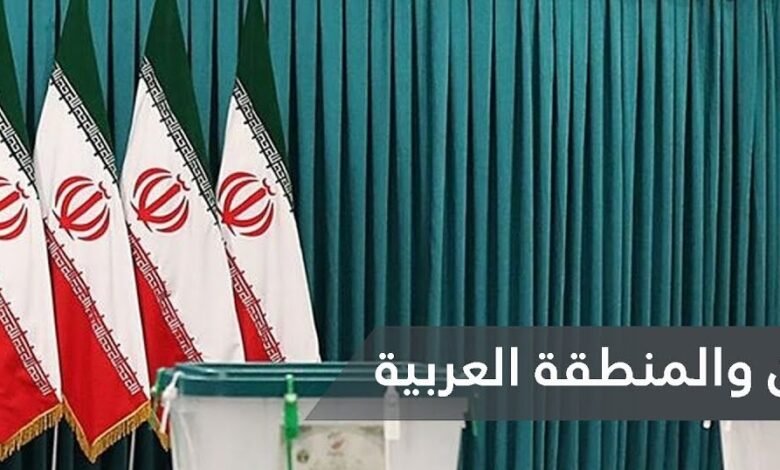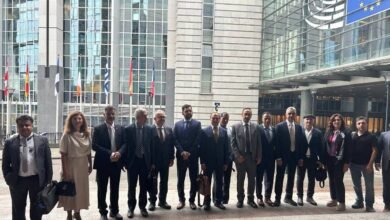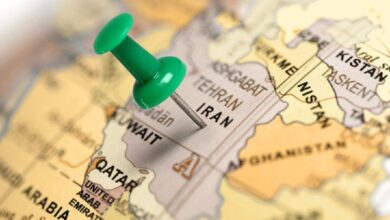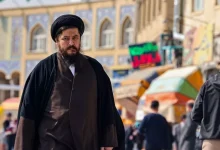
The Ahwazi Assembly’s objectives ahead of the upcoming 14th presidential election in Iran primarily advocate for a federal system and the right to self-determination for the Arab people of Ahwaz. It is crucial to note that the current regime, which operates under the principle of “Guardianship of the Jurist,” has yet to conduct genuinely free, pluralistic, and democratic presidential elections. Since the presidential elections of 1997 (1376 Hijri Shamsi), there has been a history of electoral fraud and suppression of any reformist movements within Iran, notably culminating in the manipulated results of 2009 (1388 Hijri Shamsi). Consequently, there is widespread anticipation of significant public and popular resistance, as witnessed in previous instances resulting in numerous casualties among our Arab population who have independently protested since 2005, through 2018, and up until 2021.
The Ahwazi Assembly asserts that these elections and any political or popular movements should lead to a transformation in Iran’s system of “Guardianship of the Jurist.” Even in authoritarian contexts, it remains plausible to present a more inclusive electoral program. Therefore, we outline the following proposals for presidential candidates:
1. Ensuring swift government payment of dues owed to Arab farmers and peasants in Ahwaz, alongside resolving labor concerns within the region.
2. Addressing the issue of manufactured environmental pollution, which has driven numerous indigenous Arabs to migrate, with a specific focus on rectifying water scarcity impacting drinking water and agricultural needs, while concurrently reducing air pollution. This includes the construction of numerous dams, preserving marshlands and rivers, and redirecting water resources to other cities and provinces.
3. Mitigating the restrictions on Arab literature, music, theater, and cinema, and allocating funds to support these expressions of culture, on par with their Persian equivalents. Furthermore, there is an emphasis on promoting Arab music, literature, and arts within the Ahwaz region, which is primarily inhabited by the native Ahwazi Arabs.
4. Establishing cultural and artistic institutions, publishing houses, and theaters within Arab communities, alongside ensuring non-interference in any cultural activities taking place within the region.
5. Rectifying the centralized railway system that currently favors certain dominant ethnic groups within Iran. This includes appointing an Arab governor to the region and ending discrimination in key governmental appointments and employment within both the private and public sectors, based on Arab-majority and minority ratios.
6. Concentrating investments and governmental powers within the capital and central regions of Iran, at the expense of non-Persian populations—especially the Arab population of Ahwaz—constitutes an injustice and contradicts sustainable development. Therefore, a fixed percentage of revenues derived from the extraction of oil and gas within the region should be allocated towards the development and prosperity of Ahwaz.
7. Reinstating historical Arabic names for the region and its cities, which has long been a demand of our people. Despite similar changes having been implemented in other areas of Iran, the Ahwazi Assembly demands that names such as “Khuzestan,” “Khorramshahr,” “Susangerd,” “Shadegan,” “Ramshir,” “Mahshahr,” and other Arabic cities be changed to “Arabistan,” “Al-Muhammara,” “Al-Khafajiya,” “Al-Falahiya,” “Al-Khaleefiya,” “Ma’shour,” and others.
8. Urging for the reduction of authoritarian control over women in Iran, both violently and non-violently, by leaving the issue of the hijab to the discretion of women themselves. Moreover, the Ahwazi Assembly calls for the creation of organizations that allow Ahwazi women to protect their rights, as well as an end to the constraints imposed on them by security institutions. > Elyar kamrani:
9. Stressing the importance of teaching in Arabic (as well as other non-Persian languages) within elementary and secondary schools as a means to combat cultural assimilation. The Assembly highlights the damage caused by such assimilation, which can reach levels of cultural, psychological, and social devastation akin to collective cultural genocide.
10. Encouraging measures to combat the rise of racism and anti-Arab sentiment that has significantly impacted the Ahwazi people, to the extent possible within the capabilities of the Iranian government. This includes advocating for the establishment of government regulations that strictly prohibit racism and anti-Arab sentiments within Iran.
Date: 24/6/2024







